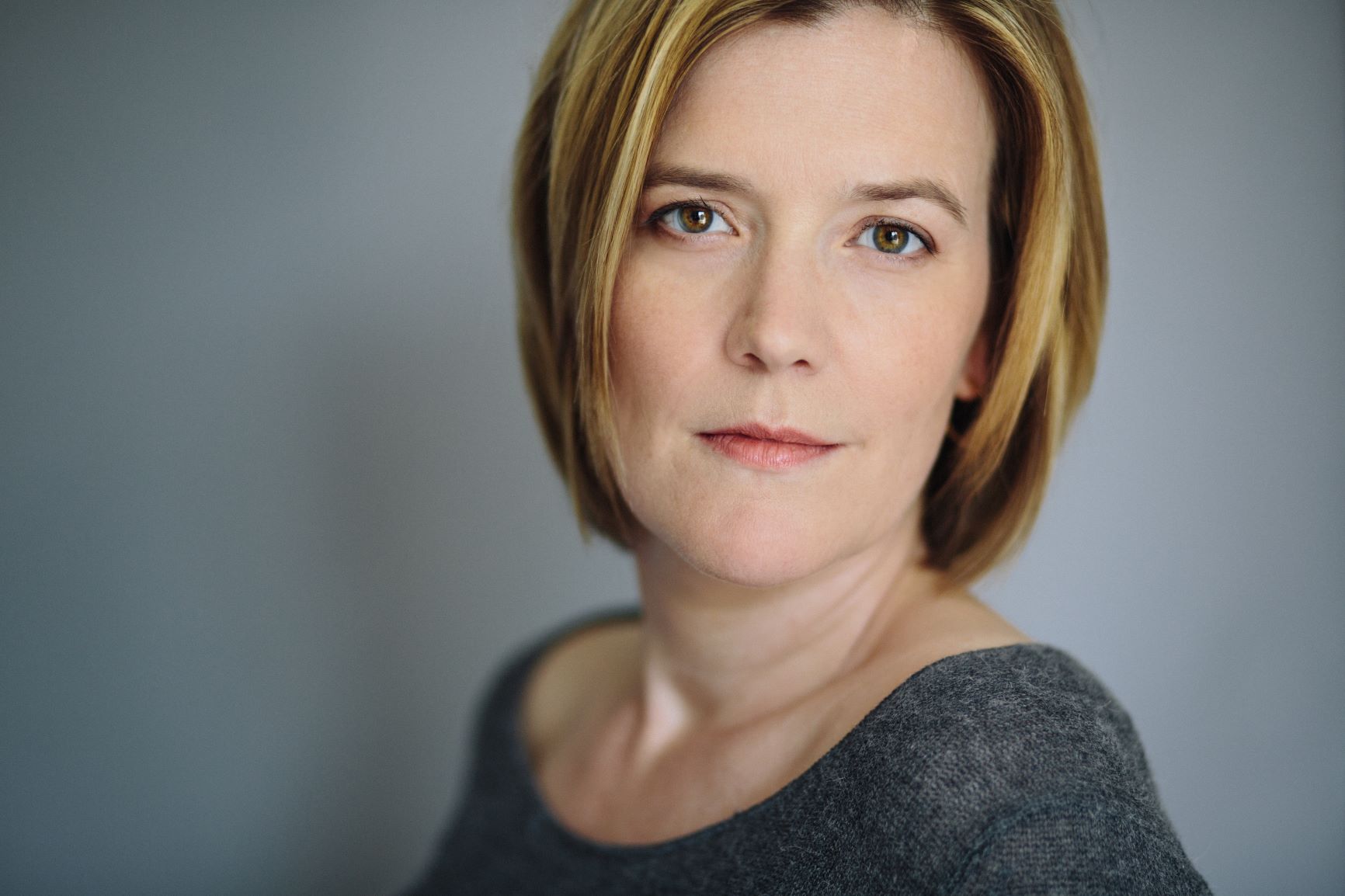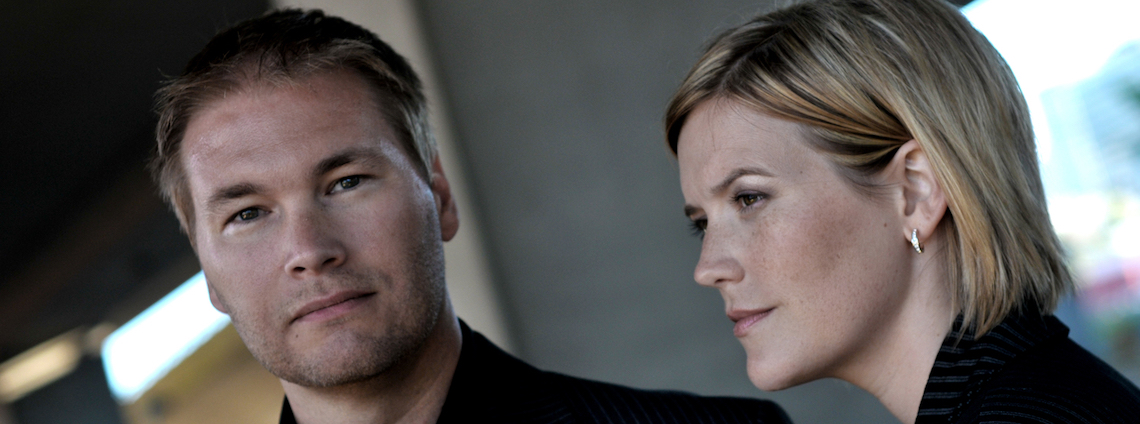Christ Church Cathedral | Map
Tyler Duncan, baritone; Erika Switzer, fortepiano
Schumann’s beloved song cycle of love and loss is paired here with the four songs Brahms wrote for Clara Schumann in anticipation of her death and on texts from Luther’s translation of the Bible. One of Canada’s most successful baritones and a native of Vancouver, Tyler Duncan is a regular guest on the world’s most important concert and opera stages. For this concert he is joined by his partner, on and off stage, internationally-renowned collaborative pianist Erika Switzer.
Click here for information about parking around / transiting to Christ Church Cathedral
Programme
Robert Schumann (1810-1856): Dichterliebe, op 48 (1840)
1. Im wunderschönen Monat Mai
2. Aus meinen Tränen sprießen
3. Die Rose, die Lilie, die Taube, die Sonne
4. Wenn ich in deine Augen seh’
5. Ich will meine Seele tauchen
6. Im Rhein, im heiligen Strome
7. Ich grolle nicht
8. Und wüten’s die Blumen, die kleinen
9. Das ist ein Flöten und Geigen
10. Hör’ ich das Liedchen klingen
11. Ein Jüngling liebt ein Mädchen
12. Am leuchtenden Sommermorgen
13. Ich hab’ im Traum geweinet
14. Allnächtlich im Traume seh’ ich dich
15. Aus alten Märchen
16. Die alten, bösen Lieder
INTERVAL
Johannes Brahms (1833-1897): Vier ernste Gesänge, op 121 (1896) (Four Serious Songs)
1. Denn es gehet dem Menschen wie dem Vieh
2. Ich wandte mich und sahe an
3. O Tod, wie bitter bist du
4. Wenn ich mit Menschen- und mit Engelzungen redete
Programme Notes
Poetry and music have much in common. They exploit sound as their primary medium, and share structural features such as rhythm, meter, volume or accent, pitch, and syntax. During the renaissance of lyric verse in the early nineteenth century, poetry and music became inextricably linked in the genre of the German lied. Johann Wolfgang von Goethe believed that music completed the lyric poem, commenting in a letter that when poetry is set to music, “something unique happens. Only then is the poetic inspiration, whether nascent or fixed, sublimated (or rather fused) into the free and beautiful element of sensory experience. Then we think and feel at the same time, and are enraptured thereby.” The lied paired poignant, self-reflexive poetry about individuals’ confrontations with nature and society with the intimate, accessible, and richly expressive solo human voice accompanied by the marvelous, new, piano-forte.
Robert Schumann was a voracious reader of poetry, but until 1839 he had composed only piano music. Suddenly (and most happily for us), the convergence of some new aesthetic ideas, his pragmatic need to compose marketable music by which he might earn a living, and the emotional crisis of his court battle with Friedrich Wieck for Clara’s hand in marriage, resulted in an explosion of song writing – 140 lieder composed in a single year. He wrote to Clara that he “found himself walking round his room singing like a nightingale.” Stylistically, Schumann’s songs are like sung piano pieces. He became a master of marrying a quasi-verbal vocal line with a musically independent piano part.
The poems of Heinrich Heine were among Schumann’s favourites. Heine’s poems are short, usually one to three verses, using simple vocabulary and folk-like meters and rhyme schemes. Their form and style, however, is a façade for content that is sophisticated, sardonic, and sometimes angry. Many of his colleagues found Heine’s work confusing and at odds with the goals of lyric poetry. Schumann met Heine in 1828 and wrote in his diary about a man with a perpetually ironic smile with whom he felt immediate friendship and had spent an entire day wandering through Munich. In fact, Schumann’s piano music is not unlike Heine’s poetry – short pieces with biting rhythms and often ambiguous meanings. In another diary entry, Schumann wrote that he preferred Heine’s “bizarrerie” to the pretentiousness of critics.
Schumann winnowed Heine’s Lyrisches Intermezzo, a collection of sixty-five poems published in his Buch der Lieder (1827), down to twenty poems, which he set to music in only nine days. When the song cycle, which Schumann titled Dichterliebe was published about a year later, he had further distilled it to sixteen songs. In so doing, he became co-creator if the cycle’s text, transforming Heine’s loosely organized collection into a narrative set. In it, an artist remembers his experience of love (songs 1-4), rejection and loss (song 5-11), and struggle to come to grips with his sorrow (songs 12-16). Schumann’s work is the embodiment of the Romantic ideal of finding unity amid variety. Each song is a unique and vivid miniature that contributes to a story of intense and changing emotions. Often, Schumann employs the piano preludes and postludes to link songs by recalling past material or foreshadowing the content of the next song.
It may seem surprising that Schumann chose to publish songs about the trauma of rejected love during the year in which he won a lawsuit against his father-in-law-to-be (who was sentenced to two weeks in jail for defamation of Schumann’s character!) and was finally permitted to marry his beloved Clara, but stress of the legal battle, the fear of losing Clara forever, the instability of his own mental health, and the new pressure to support a family weighed heavily on him. Fourteen years after the publication of Dichterliebe, he attempted suicide, terrified that his delusions would cause him to harm his family. Johannes Brahms had then recently met and become close to the Schumann family, and would remain a close friend of Clara Schumann for the rest of her life.
Brahms’s Vier ernste Gesänge were his response to news of Clara’s imminent death. Rather than choosing contemporary poetry, Brahms selected biblical texts from Ecclesiastes and I Corinthians that express the vanity of human existence and the redemptive power of love. Expressing his characteristically reserved attitude towards matters of faith, Brahms described his settings as “damnably serious and at the same time… impious.” He moved away from the melodious approach to song of his youth to an intensely declamatory vocal style that harkens back to the sacred monody of the Baroque and paired it with a dramatic and virtuosic piano part. In a letter to their mutual friend Joseph Joachim, he expressed his reflection on an elderly artist’s experience of love and loss, writing, “The thought of losing her can terrify us no longer, not even me the lonely man for whom there is all too little alive in the world. And when she is gone from us, will our faces not light up with pleasure when we remember her? That wonderful woman whom we were privileged to take delight in throughout a long life – to love and admire her ever more greatly. Only thus do we mourn her.”
Christina Hutten, April 2017
Texts and Translations
Click here to view or download the texts and translations for this concert

Tyler Duncan, baritone
Sought-after baritone Tyler Duncan appears regularly on major concert stages around the world. Recent critics have called his performances “eloquent,” “charismatic,” and “stunning,” and praised his “refined, burnished voice” and “impeccable phrasing.” Tyler has recently appeared in concerts with the Minnesota Orchestra, the Toronto Symphony, the Kansas City Symphony, the New York Philharmonic, and at the Wigmore Hall.
Also accomplished on the opera stage, Tyler has appeared at the Metropolitan Opera as Prince Yamadori in Puccini’s Madama Butterfly under Karel Chichon, among many other Met Opera roles. Other recent roles include Morales in Bizet’s Carmen under Seiji Ozawa, and appearances in the Spoleto Festival as the Speaker in Mozart’s The Magic Flute. Duncan is also passionate about new opera; recent roles include Raymond in Nic Gotham’s Nigredo Hotel with City Opera Vancouver, and in the world premiere of Jonathan Berger’s Leonardo at New York’s 92nd Street Y.
Mr. Duncan also performs as a duo with pianist Erika Switzer, celebrating songs from the Romantic period as well as the work of living composers. Together the pair have premiered dozens of new compositions.
Tyler’s recordings include the newly released album English Songs à la française with Erika Switzer, the Juno Award winning Vaughan-Williams Serenade to Music with Peter Ounjian and the Toronto Symphony, Earthquakes and Islands: an album of songs by Andrew Staniland with texts by Robin Richardson, the title role in John Blow’s Venus and Adonis with Boston Early Music Festival, J.S. Bach’s St. John Passion with the Portland Baroque Orchestra, Purcell works and Carissimi’s Jephte with Les Voix Baroque, and a DVD of Handel’s Messiah with Kent Nagano and the Montreal Symphony Orchestra. His singing has been recognized internationally with numerous awards, including Grammy and Juno nominations and prizes from the Naumburg, London’s Wigmore Hall, and Munich’s ARD competitions.
Originally from British Columbia, Canada, Mr. Duncan resides in New York’s beautiful Hudson Valley. www.tylerduncan.ca

Erika Switzer, fortepiano
Canadian collaborative pianist Erika Switzer made her American debut at the Kennedy Center in 2003. Since that time, she has established herself as the frequent partner of several notable vocalists, including baritone Tyler Duncan, tenor Colin Balzer and soprano Martha Guth.
Ms. Switzer has performed recitals at New York’s Frick Collection, Rockefeller University, Alice Tully Hall, Carnegie Hall (Weill Hall), and for the 5 Boroughs Music Festival. In Europe, she has performed as a guest of Pro Musicis at Paris’ Salle Cortot and for the Poulenc Academy at the
L’Hôtel de ville de Tours. Other European performances include appearances at the Göppingen Meisterkonzerte, the New Discoveries series at the Baden-Baden Festspiele, and the Winners & Masters series in Munich. In her native Canada, she has performed at the Chamber Music Festivals of Montreal, Ottawa and Vancouver, and for presenters including Music on Main, Debut Atlantic, Prairie Debut, Roy Thomson Hall Presents: Canadian Voices, and the André Turp Society.
Ms. Switzer has been recorded by the CBC, Dutch Radio (Radio 4), SWR and the Bayerische Rundfunk in Germany, WQXR New York and WGBH Boston. Together with Martha Guth, Erika is co-creator of ͞Sparks & Wiry Cries: The Art Song Magazine,͟ which can be found at www.sparksandwirycries.com. Her recording of Brahms’ Liebeslieder Waltzes, on the Sparks & Wiry Cries label, is available for purchase on iTunes.
Ms. Switzer is on the music faculty at Bard College and the Bard Conservatory of Music. She is a founding faculty member of the Vancouver International Song Institute and co-director of its Contemporary Performance Studies program.
Erika Switzer won First Prize for best pianist at the Wigmore Hall International Song Competition and the Best Pianist award at the Robert Schumann International Vocal Competition. Following seven years in Germany, Ms. Switzer recently completed her doctorate at the Juilliard School of Music.
“Erika Switzer is one of the best collaborative pianists I have ever heard; her sound is deep, her interpretation intelligent, refined, and captivating.” – Le Monde
“… precise and lucid” – New York Times


